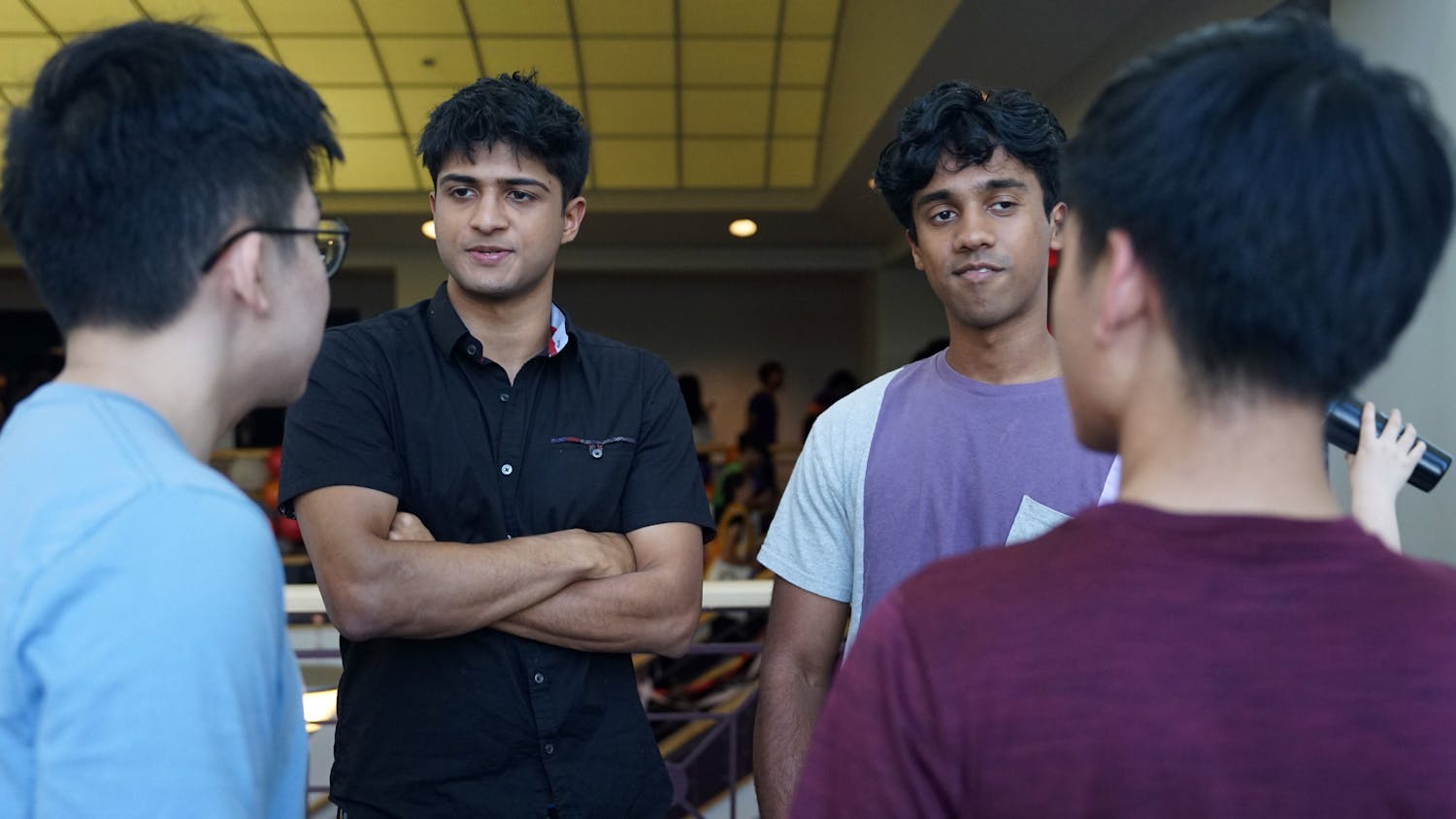In 1998, Maxine Margolis felt angry.
As a UF anthropology professor, she sued the university for salary discrimination, alleging the university ignored years of complaints that her male counterparts earned more money than she did.
In 2001, the lawsuit was settled for an undisclosed amount, she said.
Fifteen years later, there is still a noticeable disparity between female and male faculty members.
Eight women. Ninety-two men.
Of the university’s 100 highest-paid salaried faculty members who work at least three-fourths of the year — excluding those hired by the athletic department — eight are women and 92 are men, according to the most recent public payroll data the university has provided to the state.
Of these, the highest-ranked woman earns $524,450, or about half as much per year as the highest-ranked man earns — $984,759, according to the data.
“It seems to me that very little has changed at the university,” Margolis said.
• • •
For Dr. Shahla Masood, inequality in the workplace has become the norm.
A professor in the UF College of Medicine in Jacksonville, Masood is the fourth-highest-paid female faculty member at UF, according to the data.
Fifty-one men earn more.
Although several factors contribute to the skew, Masood said some female faculty members feel afraid to speak up in fear of being ignored, criticized or, in extreme cases, fired.
“Frankly, there is a lot of fear,” Masood said. “Fear of retaliation and fear of speaking up.”
Masood said she believes many people have grown accustomed to an atmosphere of inequality at institutions such as UF. The most important element of change, she said, is having the courage to discuss the situation.
“It’s about identifying the necessity of speaking up, because we have to rupture the silence,” she said. “I want to rupture that silence, and I’ve been thinking about that for a long time.”
Just a few hours northwest of Gainesville, Florida State University boasts more than three times as many top-earning women on faculty, with 26 within the top 100, according to the data. The discrepancy exists despite FSU being ranked 42 spots below UF in academics, according to the U.S. News and World Report.
Large research universities that are comparable to UF in enrollment size and have a medical school, such as the University of Michigan and the University of Texas at Austin, also have higher rates of women among their highest-paid faculty members, according to recent public payroll data provided by the universities.
At Michigan, 26 of the university’s 100 highest-paid faculty members who work at least three-fourths of the year, excluding those hired by the athletic department, are female. At UT Austin, 20 of 100 are women — still more than twice as many as UF.
UF spokeswoman Margot Winick said university administration is aware of gender disparities and is working to address it. Winick added the university strives to recruit a more diverse faculty.
“It is part of the broader goal that has been outlined by the president and voted on by the (UF) Board of Trustees — and the goal is to address pay so that it’s on par with our peer universities,” she said.
• • •
In 1971, then-UF President Stephen C. O’Connell appointed the UF Status of Women Committee, which was established to promote equal treatment of women at the university.
In 1974, the committee was cut.
Alyssa Zucker, an associate director of the UF Center for Gender, Sexualities and Women’s Studies Research, said UF’s pay discrepancy may stem from a negative perception of female leadership.
Female leaders are often viewed as irritatingly bossy as opposed to brilliantly dominant, she said.
“In general, women’s leadership is not promoted the same way that men’s is,” Zucker said.
Currently, various faculty members are working to obtain a grant from the National Science Foundation, which Zucker believes would improve the representation of women in educational leadership, with a focus on women in science, mathematics and engineering programs.
Zucker said one way UF could work to prioritize female leadership is to extend parental leave from six weeks to an entire semester.
Kate Ratliff, a UF professor of psychology, said she agreed the school’s parental-leave policy is unfair, calling it essentially nonexistent.
“A lack of parental leave tends to hurt women more than men,” wrote Ratliff, an expert in gender and women’s issues, in an email.
Ratliff suggested this disparity, although very complex, could possibly reflect a pay gap, in which women are paid less for the same work, or a power gap, in which women are less likely to hold high-level positions.
Ratliff also cited something known as the warmth-competence trade-off, which suggests competent women in the workplace are perceived as less likable, while warm women are viewed as less capable. In either scenario, Ratliff said, women are less likely to be hired or promoted.
“I’m not arguing this IS the cause, just that discrimination is one potential factor,” she wrote.
• • •
Of the 92 men on the list, just two could be reached for comment. One of them declined to speak.
The other, Jay Ritter, an eminent scholar chair at UF’s Department of Finance, said he had not considered the issue but noted that 50 percent of current medical students are female.
“It’s something I haven’t thought about,” he said.
Alligator Contributing Writer Brett Keeler contributed to this report.






